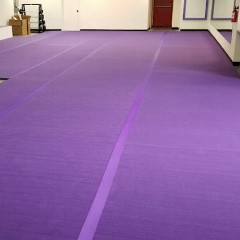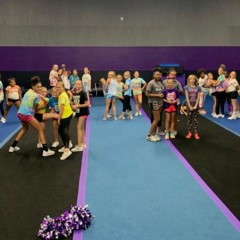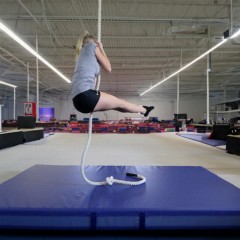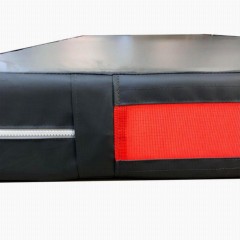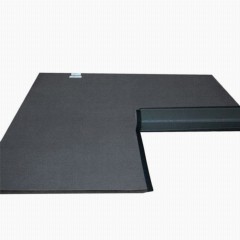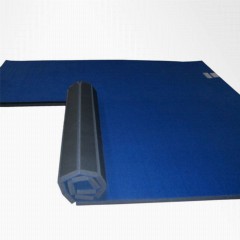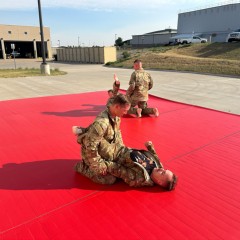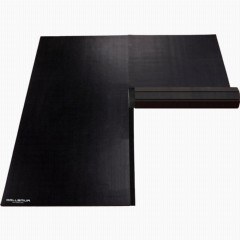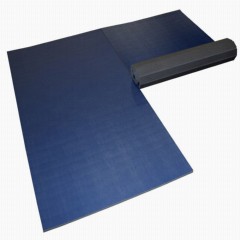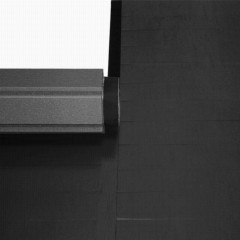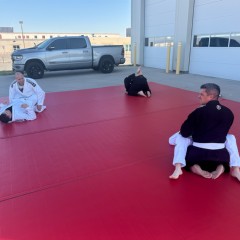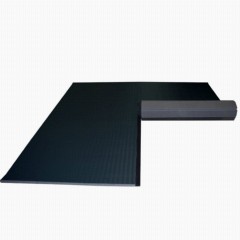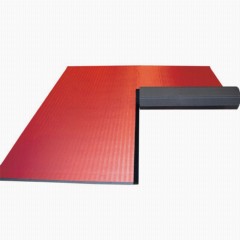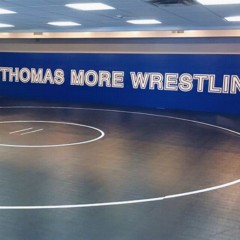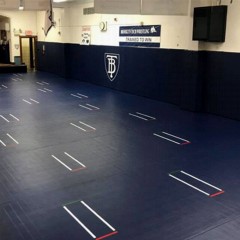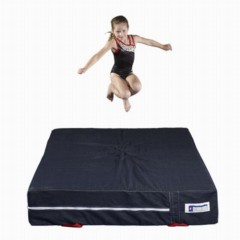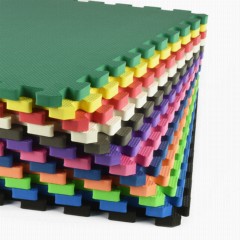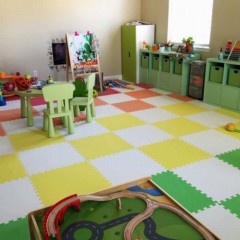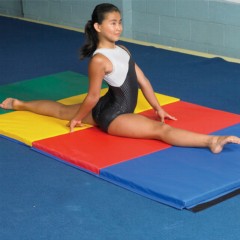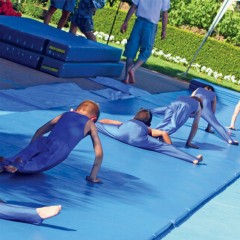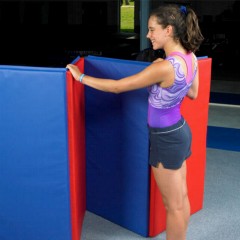Options for Sensory Room Wall Padding
No matter what you call it—sensory room, calming room, de-escalation room, reset room, reflection room, quiet room, or padded room—such rooms are vital for creating a space where children and patients can be safe during medical episodes or self-harm attempts. The sensory room wall padding you select for these spaces must be able to handle rough treatment while delivering excellent cushioning.
At Greatmats, we have calm room wall padding in many sizes, thicknesses, and colors for use on walls and floors. Our products are secured tightly in place, preventing the child or patient from tearing them loose. They also are easy to install yourself, if desired, and they’re easy to clean. You can trust the quality of our products to keep everyone safe until the medical episode ends and calm is restored.
Types of Calm Room Wall Padding
Whether you need flooring or safe room wall padding for children with autism, individuals who have seizures, or de-escalating an emotional situation, the Greatmats customer service team can help you find just the right product.
- Wall Padding: We have wall pads up to 2 inches in thickness and protected with a vinyl layer to ensure longevity. We have standard pads for the walls, or you can order customized wall padding for sensory or calm rooms that have specific heights and widths or cutouts for windows. Custom options can be helpful in multi-sensory therapy or occupational therapy rooms, too.
- Floor Padding: Padding on the floors is a key part of sensory room padding, preventing injuries from an autistic child, student, or patient falling to the ground or trying to bang their heads on the hard floor. We offer interlocking puzzle mats for durability, as well as folding gym mats, roll-out foam mats, and landing mats for extra cushioning.
- Pole Padding: If you have support posts or columns inside the relaxation classroom or sensory gym at an elementary, middle, or high school, we offer special padding for this situation. Our column and pole pads wrap securely around the poles, providing protection.
Where to Use Calm Room Wall Padding
Being mindful of the selection of the safe room wall padding for special needs is key. You want the padded products to provide safety while ensuring that they won’t pop loose and allow a potential self-harm episode. Some of the places where you may want to install our padding for walls for special needs include:
- Sensory rooms
- Therapy rooms
- Calming rooms
- Relaxation rooms
- Reflection rooms
- De-escalation rooms
- Reset rooms
- Quiet rooms
- Seclusion rooms
- Psychiatric exam rooms
Whether you are in a school, a medical facility, a therapy office, or at home with a special needs child, you can trust products from Greatmats to remain secure to the wall or floor, even when those using the room are actively trying to pull the soft and cushioned materials loose.
Sensory Room Wall Padding Q&A
What is a padded room, and how would you use it?
The
definition of a padded room is an area where cushioned wall and flooring materials can provide protection from someone causing self-harm by striking the wall or floor, whether voluntarily or involuntarily. If a child at a school, a clinic, or at home is having difficulty calming down, the calm room wall padding prevents injuries from falls, banging the head against the wall or floor, or involuntary movements related to a seizure.
How do you make a padded room?
If you want to
DIY sensory room wall padding and flooring, you simply need to order the correct size and amount of padding before installing it. Greatmats offers many different padded products that are easy to install and that provide excellent value over time.
How is a seclusion room used to create a safe space?
Learning
how to use a seclusion room is important for helping children and patients receive the protection against self-harm they need and the quiet conditions they need while deploying techniques to calm themselves.
How is floor padding used in an occupational therapy and play center?
Learning
how to use floor padding for occupational therapy is important for protecting the kids. If the children are climbing on equipment during occupational therapy sessions or when playing indoors, padding on the ground protects them from possible falls.
 $899 /sqft You Save 15%Shop$649 /Tile You Save 41%$1.67/sqftShips Out in 1-3 Working Days Free ShippingShop$57120 /Each You Save 14%$14.28/sqftShop$37039 /Each You Save 14%$15.43/sqftShop$45369 /Each You Save 14%$14.18/sqftShop$69615 /Each You Save 15%$13.92/sqftShop$96539 /Each You Save 14%$13.41/sqftShop$49236 /Each You Save 15%$12.31/sqftShop$37485 /Each You Save 14%$15.62/sqftShop$44030 /Each You Save 14%$13.76/sqftShop$62921 /Each You Save 15%$12.58/sqftShop$79581 /Each You Save 15%$11.05/sqftShop$50426 /Each You Save 15%$12.61/sqftShop$41501 /Each You Save 15%$17.29/sqftShop
$899 /sqft You Save 15%Shop$649 /Tile You Save 41%$1.67/sqftShips Out in 1-3 Working Days Free ShippingShop$57120 /Each You Save 14%$14.28/sqftShop$37039 /Each You Save 14%$15.43/sqftShop$45369 /Each You Save 14%$14.18/sqftShop$69615 /Each You Save 15%$13.92/sqftShop$96539 /Each You Save 14%$13.41/sqftShop$49236 /Each You Save 15%$12.31/sqftShop$37485 /Each You Save 14%$15.62/sqftShop$44030 /Each You Save 14%$13.76/sqftShop$62921 /Each You Save 15%$12.58/sqftShop$79581 /Each You Save 15%$11.05/sqftShop$50426 /Each You Save 15%$12.61/sqftShop$41501 /Each You Save 15%$17.29/sqftShop
